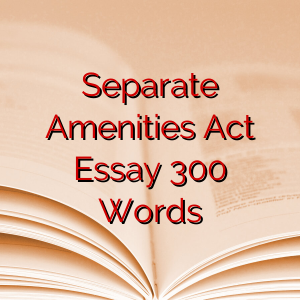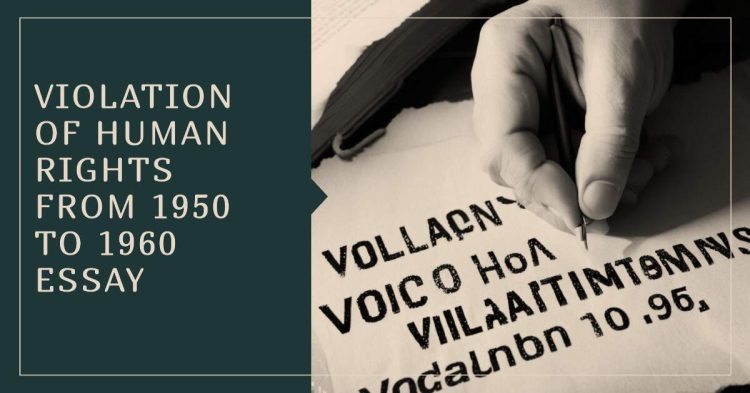Essay About The Pass Laws 300 Words
let’s explore a piece of history that’s like a puzzle from the past – the Pass Laws. It’s a chapter of our world’s history filled with struggle, injustice, and the courage of those who fought against it. So, grab your time-traveling hats, and let’s dive into this important journey!
What Were the Pass Laws? – A Glimpse into a Challenging Past
The Pass Laws were like a set of rules and regulations in South Africa during a time when things were not equal for everyone. They started way back in the 18th century but became more serious in the 20th century. These laws required people of color, mainly Black South Africans, to carry a special passbook with them at all times. It’s like carrying around a ticket just to prove who you are.
Apartheid – The Dark Background
To understand the Pass Laws, we need to talk about apartheid. Apartheid was like a big dark cloud that hung over South Africa for many years. It was a system of racial segregation that separated people based on the color of their skin. The Pass Laws were one of the tools used to enforce apartheid and control the movement of Black South Africans.
The Different Types of Passes
There were different types of passes for different purposes. It’s like having a bunch of keys, each unlocking a different door. There were work passes, travel passes, and even passbooks for children. These passes controlled where people could live, work, and travel.
The Struggles and Hardships
Living under the Pass Laws was like walking through a maze filled with obstacles. Black South Africans had to deal with constant police checks, arrests, and harassment. It was difficult to find work or move to different areas without the right passes. Families were often separated because of these laws.
Heroes Who Fought Back
Even in the darkest times, there were heroes who stood up against the Pass Laws. People like Nelson Mandela, Steve Biko, and many others were like beacons of hope. They organized protests, spoke out against injustice, and worked tirelessly to bring about change.
International Pressure
The Pass Laws didn’t just affect South Africa; they caught the attention of the world. Other countries imposed sanctions and boycotts to pressure South Africa to end apartheid and the Pass Laws. It’s like a global chorus of voices demanding justice.
The End of Apartheid
Finally, in the early 1990s, the world witnessed a remarkable change. It was like a bright dawn breaking after a long night. South Africa started to dismantle apartheid and the Pass Laws. Nelson Mandela was released from prison, and negotiations for a more equal society began.
Lessons Learned
The Pass Laws and apartheid are like reminders of the importance of equality, justice, and the power of people coming together to make a change. We must remember this part of history so that we can prevent such injustices from happening again.
Our Role in History
As young people, we also play a role in history. It’s like adding our own brushstrokes to a painting. We must learn about the past, stand up against injustice, and work towards a more equal world. Our actions today shape the future.
A Brighter Future
Today, South Africa has made progress towards equality, but the wounds of the past still linger. It’s like a healing process that takes time. By learning about the Pass Laws and understanding their impact, we can be part of a brighter future where all people are treated with fairness and respect.
Conclusion: Remembering and Learning
The Pass Laws were a dark chapter in South Africa’s history, but they also serve as a reminder of the strength of the human spirit and the power of change. By understanding this history and working towards a more just world, we can honor the heroes who fought against injustice and ensure that such laws are never repeated.
Author’s Note:
I hope you found this journey through history insightful. It’s like a window into a challenging time, but it also shows us the resilience of the human spirit. If you want to talk more about this or any other topic, just let me know!

Hello! Welcome to my Blog StudyParagraphs.co. My name is Angelina. I am a college professor. I love reading writing for kids students. This blog is full with valuable knowledge for all class students. Thank you for reading my articles.




